1. The Dream
 Several years ago, while going through a box of books at my job, I came across Wake of the Perdido Star, a work of fiction authored by actor Gene Hackman and Daniel Lenihan. Intrigued, I peeped inside and read the following:
Several years ago, while going through a box of books at my job, I came across Wake of the Perdido Star, a work of fiction authored by actor Gene Hackman and Daniel Lenihan. Intrigued, I peeped inside and read the following:
‘The cook has told me there be salted cod and bits of cheese for supper,’ he said. ‘If you like, I’ll fetch you some.’
‘Speak to me not of food, for I am soon to die.’
I was so charmed by this discovery that I immediately founded a celebrity book club and emailed everyone I knew [actual excerpt]: “I have decided to start a celebrity book club. There is another celebrity book club, where celebrities read books. In this club we will read celebrities’ books, but only if they are novels and full of magic and imagination.”
Like many enterprises I have undertaken with great verve and style, this club foundered due to my own delinquency; some loyal friends in fact read Wake of the Perdido Star (one of them really liked it), but we never met to discuss, act out dialogues, and drink beer like I promised in my invitation. And today, a thwarted virgin, I’ve still yet to read a single celebrity novel in its entirety.
I was reminded of this abandoned book club because the other night I had 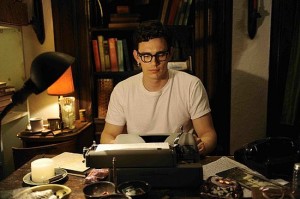 a dream where I met James Franco and we forged a very deep sort of friendship and he started writing me long letters on a typewriter. “If James Franco writes you long letters on a typewriter,” I wondered in the dream, “Is it cheating?” Then I woke up with a visceral desire to read his fiction (this also feels like cheating).
a dream where I met James Franco and we forged a very deep sort of friendship and he started writing me long letters on a typewriter. “If James Franco writes you long letters on a typewriter,” I wondered in the dream, “Is it cheating?” Then I woke up with a visceral desire to read his fiction (this also feels like cheating).
2. Feeling Frisky
Garth, in a humorous post last year, riffed off the news of Michael Cera‘s appearance in McSweeney’s and alerted us to the trend of celebrity fiction in the pages of high-faluting publications. But I think this phenomenon has been with us for decades (maybe even centuries).
There is something about celebrity novels that seems intrinsically against nature, like cats playing the piano. Celebrities are perfect the way they are. They don’t need to be great writers in addition to being great thespians or singers (or shatteringly attractive, or whatever it is that made them famous). More importantly, the appearance of their books signifies a great injustice; celebrities, by virtue of their fame, get the opportunity to publish, an opportunity out of reach for most of us here in the great unwashed.
I’m not being fair, of course. Celebrities are people too, not vessels for our pleasure, and they should do what they please with their lives. If you’re an artist, you’re an artist, and your art will out. Also, writing fiction is hard, and many of us have tried to do it with excruciating results, which we keep quietly to ourselves.
But all celebrity novels are not created equal. Some celebrities demonstrate (appear to, rather, since I can’t say for sure) an admirable flexibility of medium and a great deal of facility with the written word. Furthermore, they seem to actually want to express themselves, and not simply to diversify their media portfolios.
On the other hand, many celebrity-cum-authors seem to lack even passing familiarity with books, any books at all, and the habitual contents thereof; many enlist aides just to get the woeful sentences onto the page. When Lauren Conrad (she played “Lauren” on The Hills) writes a novel (three novels, in fact), it rouses my inner Marx. Or maybe Robespierre.
With this in mind, inspired by the afterglow of my James Franco reverie, and remembering my foundered book club, I’ve started this bibliography of celebrity fiction. The trend pieces about actor-writers (and Franco, always Franco) on sites like, for example, the ominously named Frisky, identify a paltry ten titles and call it a day.
I think we can do better.
3. The List
It turns out that tracking down celebrity novels is not all that easy. Some of the books, unsurprisingly, seem to have slunk off in shame. For now I’m not counting children’s books, because most celebrities seem to have dabbled in children’s fiction (and pacifism) at some point in their careers. I’m also not counting novels based on movies. “Celebrities” is defined here as famous people famous for things other than writing novels–I’m casting the net wide.
So who am I missing? And what did I get wrong?
Pedro Almodovar. Fuego en las Entranas (1981), El Sueno de la Raison (1980). I would love find these, also to be able to read Spanish. One synopsis I found says that Fuego, a novella, is about a vengeful maxi pad magnate.
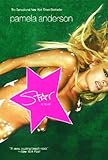 Pamela Anderson. Star (2005), Star Struck (2005). Scantily clad autobiographical fiction.
Pamela Anderson. Star (2005), Star Struck (2005). Scantily clad autobiographical fiction.
Lionel Barrymore. Mr. Cantonwine, A Moral Tale (1953). Sounds decidedly unsalacious.
Glenn Beck. The Overton Window (2010). Basically this book is about David Plouffe or somebody being awakened from his shallow existence to the grim realities of PEOPLE WHO HATE FREEDOM. Glenn Beck apparently calls this a “faction,” i.e., fiction+fact. But the thing about neologisms is, is that you can’t make one out of something that is already actually a word with its own meaning. Like, I might want to call this book a “diction” (you do the math), but I can’t because it WOULDN’T MAKE SENSE.
Barbara Boxer and Mary-Rose Hayes. A Time to Run (2005). B.B. novelizes the liberal agenda.
 Marlo Brando, Donald Cammell, David Thomson. Fan Tan (2005). I think this counts–Brando came up with the scenes and some of the premise, Cammell wrote the treatment, and then Thomson, after Brando’s death, filled in the blanks for publication. The result had Louis Bayard asking, “Why does a novel written in the early 1980s feel like something that had lain at the bottom of the sea for half a century prior?”
Marlo Brando, Donald Cammell, David Thomson. Fan Tan (2005). I think this counts–Brando came up with the scenes and some of the premise, Cammell wrote the treatment, and then Thomson, after Brando’s death, filled in the blanks for publication. The result had Louis Bayard asking, “Why does a novel written in the early 1980s feel like something that had lain at the bottom of the sea for half a century prior?”
Jimmy Buffett. Where is Joe Merchant? (2003), A Salty Piece of Land (2006). Adventure, beaches, sea planes, presumably margaritas.
Ed Burns, Jimmy Palmiotti, and Siju Thomas. The Dock Walloper (first in the series is 2008). Like the other celebrity comic book impresarios on this list, it’s hard to tell exactly what the celebrity’s role is in the process.
 Tim Burton. The Melancholy Death of Oyster Boy and Other Stories (1997). Gruesome yet whimsical vignettes and illustrations (Gorey-esque?).
Tim Burton. The Melancholy Death of Oyster Boy and Other Stories (1997). Gruesome yet whimsical vignettes and illustrations (Gorey-esque?).
Bruce Campbell. Make Love the Bruce Campbell Way (2006). This doesn’t sound like a novel, but it is.
Naomi Campbell. Swan (1996). Famous supermodel gets blackmailed, has adventures. Yawn.
Johnny Cash. Man in White (1986). I am learning so much compiling this list. Like that Johnny Cash wrote Biblical fiction about the Apostle Paul.
 Michael Cera. “Pinecone” in McSweeney’s 30 (2009). I found what I think was an excerpt online and I was unmoved.
Michael Cera. “Pinecone” in McSweeney’s 30 (2009). I found what I think was an excerpt online and I was unmoved.
Lynne Cheney. Sisters (1981). Holy crap. Before Lynne Cheney was busy penning epics like America: A Patriotic Primer (J is for Jefferson, E is for Extraordinary rendition), she wrote a sexy lesbian sex book.
Lauren Conrad. L.A. Candy (2010), Sweet Little Lies (2010), and there’s another one coming out in October. These purported fictions are about a girl who goes to Los Angeles to be in a reality show. The woman has published three books in one year! This is the shit of which rebellions are fomented.
Wes Craven. The Fountain Society (1999). Cloning, secret military societies.
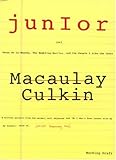 Macauley Culkin. Junior (2007). Autobiographical fiction featuring stream-of-consciousness rants, quizzes, doodles, dad issues. Sounds awfully post-modern.
Macauley Culkin. Junior (2007). Autobiographical fiction featuring stream-of-consciousness rants, quizzes, doodles, dad issues. Sounds awfully post-modern.
Tony Curtis. Kid Andrew Cody and Julie Sparrow (1977). I can’t find out what this was about, but it ended with a lawsuit against Curtis, brought by Doubleday.
Bob Dylan. Tarantula (1965). Bob Dylan wrote an experimental novel, which was apparently so bad that he claimed he was coerced into writing it.
Frederico Fellini and Milo Manara. Viaje a Tulum (1990). I really don’t know if this counts, but it sounds cool. It’s a script that Fellini abandoned, which was taken up by Manara and turned into a graphic novel, and I think Fellini added some of the art. There was a translated edition also, Trip to Tulum (1990).
Carrie Fisher. Postcards from the Edge (1987), The Best Awful (2004). Hollywood, full of crazy characters and mad-cap adventures!
 James Franco. First there was “Just Before the Black” in the March 24, 2010, issue of Esquire. Not to jeopardize our budding relationship in my mind, but I did read this, and I’m not really sure I understand what Franco was going for here. Disturbed young tough, first-person narrative, ruminations like “I wish I was Mexican, or Hebrew, I mean Jewish, I mean Israeli, or Mexican Jewish, or Mexican Jewish gay.” It’s bizarre. Palo Alto, his collection of short stories, is coming this October. More restless youth in California. It got some good blurbs. This I will maybe pre-order. James Franco, would you like to be in my book club? Please email me to discuss.
James Franco. First there was “Just Before the Black” in the March 24, 2010, issue of Esquire. Not to jeopardize our budding relationship in my mind, but I did read this, and I’m not really sure I understand what Franco was going for here. Disturbed young tough, first-person narrative, ruminations like “I wish I was Mexican, or Hebrew, I mean Jewish, I mean Israeli, or Mexican Jewish, or Mexican Jewish gay.” It’s bizarre. Palo Alto, his collection of short stories, is coming this October. More restless youth in California. It got some good blurbs. This I will maybe pre-order. James Franco, would you like to be in my book club? Please email me to discuss.
Newt Gingrich, William Fortschen, Albert Hanser. Gettysburg: A Novel of the Civil War (2003), Pearl Harbor: A Novel of December 8 (2007), Days of Infamy (2008), Grant Comes East: A Novel of the Civil War (2004), To Try Men’s Souls: A Novel of George Washington (2009), Never Call Retreat: Lee and Grant, the Final Victory (2005), and 1945 (1995). Revisionist history with Newt! Sounds like a blast.
Gene Hackman and Daniel Lenihan. Wake of the Perdido Star (1999). Adventures on the high seas. Hackman also appears to have a thing for historical fiction; he also wrote Escape from Andersonville (2008), a civil war novel, and Justice for None (2006), a 20th century noir (all with Lenihan).
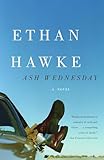 Ethan Hawke. The Hottest State (1996). Aspiring authors trying to make it in New York, have sex, talk about life. Ash Wednesdsay (2003). Young man goes AWOL, leaves pregnant girlfriend. Reunites with pregnant girlfriend, embarks on roadtrip.
Ethan Hawke. The Hottest State (1996). Aspiring authors trying to make it in New York, have sex, talk about life. Ash Wednesdsay (2003). Young man goes AWOL, leaves pregnant girlfriend. Reunites with pregnant girlfriend, embarks on roadtrip.
Elia Kazan. The Arrangement (1967). The Greek-American son of rug merchant struggles with success, adultery, pursuit of the American Dream. Don Draper? Kazan also wrote The Anatolian (1982), America America (1962), The Understudy (1974), The Assassins (1972), Acts of Love (1978), and Beyond the Aegean (1994).
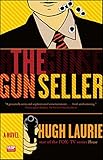 Hugh Laurie. The Gun Seller (1998). A zany spy novel, evidently with shades of Wodehouse. (Our own Andrew has already more extensively discussed the fiction of Laurie and his sometime on screen collaborator Stephen Fry)
Hugh Laurie. The Gun Seller (1998). A zany spy novel, evidently with shades of Wodehouse. (Our own Andrew has already more extensively discussed the fiction of Laurie and his sometime on screen collaborator Stephen Fry)
Janet Leigh. House of Destiny (1995). Rags to riches, bellboy to famous Hollywood producer. Dream Factory (2002), more Hollywood.
John Lennon. A Spaniard in the Works (1965). Goofy stories filled with puns and spoonerisms.
Courtney Love, Ai Yazawa, Misaho Kujiradou, D.J. Milky. Princess Ai (first 2004, several volumes thereafter). Courtney Love does manga.
 Michael Madsen. The Complete Poetic Works of Michael Madsen Vol. 1, 1995-2005 (2005). That Michael Madsen is a prolific enough poet to necessitate delineation by volume number is for some reason a serious mind-fuck. “Why do some men ask for a beating?/ You can see it in their faces,/ You know… they need it./ I beat a guy/ With a tire iron once …” Also, Burning in Paradise (1998). Drugs, sex, sadness.
Michael Madsen. The Complete Poetic Works of Michael Madsen Vol. 1, 1995-2005 (2005). That Michael Madsen is a prolific enough poet to necessitate delineation by volume number is for some reason a serious mind-fuck. “Why do some men ask for a beating?/ You can see it in their faces,/ You know… they need it./ I beat a guy/ With a tire iron once …” Also, Burning in Paradise (1998). Drugs, sex, sadness.
Steve Martin. Shopgirl (2000). A young woman sells gloves, feels adrift, does it with a rich man. Made for tepid and weird film, I thought. The Pleasure of My Company (2004). A guy with obsessive-compulsive disorder befriends single mother, hearts are warmed. Wasn’t this the premise of As Good as it Gets?
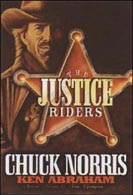 Willie Nelson and Mike Blakeley. A Tale Out of Luck (2008). Rustlers and so forth.
Willie Nelson and Mike Blakeley. A Tale Out of Luck (2008). Rustlers and so forth.
Leonard Nimoy. You and I (1973), Will I Think of You? (1974), Come be With Me (1978), Warmed by Love (1983), A Lifetime of Love (2002). Nimoy also put out a book of photographs he took of plus-sized women in which he talked shit about the fashion industry. Leonard Nimoy is the best.
Chuck Norris, Ken Abraham, Aaron Norris. The Justice Riders (2006) and A Threat to Justice (2007). Yes, Chuck Norris is a novelist. Life has lost all sense and meaning.
Bill O’Reilly. Those Who Trespass: A Novel of Television and Murder (1998). There is something really dorky about writing thinly-disguised autobiographical mystery thrillers. Bill O’Reilly totally has a dozen more of these in his nightstand drawer.
 Sharon Osbourne. Revenge (2009). Two sisters hungry for fame, one “will stop at nothing to get what she wants.” I propose a fifty-year moratorium on the phrase “will stop at nothing to get [x].”
Sharon Osbourne. Revenge (2009). Two sisters hungry for fame, one “will stop at nothing to get what she wants.” I propose a fifty-year moratorium on the phrase “will stop at nothing to get [x].”
Katie Price. Angel (2006), Crystal (2007), Angel Uncovered (2008), Sapphire (2009), Paradise (2010). Quoth the author to The Guardian: “I’m not going to lie, I don’t sit there with a typewriter and write it, of course I don’t . . . I don’t have time to do that.”
Sir Michael Redgrave. The Mountebank’s Tale (1959). From the earlier generation of actor-turned-novelists. The one synopsis I could find (by the author’s son Corin) makes this title sounds suspiciously literary for a celebrity novel.
 Carl Reiner. Enter Laughing (1958), NNNNN: A Novel (2006), Just Desserts: A Novellelah (2006). You know in the movie Wet Hot American Summer when Michael Showalter plays the wisecracking elderly emcee at the camp talent show, the one who says “I went to camp so long ago that fucking Jesus Christ was my counsellor”? I think these novels might sound something like that.
Carl Reiner. Enter Laughing (1958), NNNNN: A Novel (2006), Just Desserts: A Novellelah (2006). You know in the movie Wet Hot American Summer when Michael Showalter plays the wisecracking elderly emcee at the camp talent show, the one who says “I went to camp so long ago that fucking Jesus Christ was my counsellor”? I think these novels might sound something like that.
Nicole Richie. The Truth About Diamonds (2005), Priceless (2010). Daughter of famous musician is rich, goes to parties, does drugs, does rehab, etc. etc. etc. What an imagination! Send this woman to the Iowa Writer’s Workshop.
Joan Rivers and Jerrilyn Farmer. Murder at the Academy Awards (2009). There is nothing about this book I don’t think I can learn from the title.
Mickey Rooney. The Search for Sonny Skies (1994). Ugh, title puns.
William Shatner. Jesus, so many. Tek Series (1990), Man O’War (1996), Quest for Tomorrow series (1997), Assorted Star Trek titles (with other authors). William Shatner appears to have written (or authorized, maybe) several thousand of these, with several other people.
Wesley Snipes, Antoine Fuqua, Peter Milligan, Jeff Nentrup. After Dark #1 (2010). Wesley Snipes does comic books.
 Britney and Lynne Spears. A Mother’s Gift (2001). Little Holly is a born singer. She gets a scholarship to a singing school, everyone makes fun of her homespun, she feels ashamed of her roots. Blah, blah, blah.
Britney and Lynne Spears. A Mother’s Gift (2001). Little Holly is a born singer. She gets a scholarship to a singing school, everyone makes fun of her homespun, she feels ashamed of her roots. Blah, blah, blah.
Sylvester Stallone. Paradise Alley (1977). Apparently the book came before the movie, and Stallone wrote it.
Courtney Thorne-Smith. Outside In (2007). The fictional heroine is a failed movie actress turned television star with a hyphenated last name. That is just lazy.
Meg Tilly. Singing Songs (1994), Gemma (2006), Porcupine (2007), First Time (2008). These sound like really intense titles for young adults and grownups, all dealing with childhood sexual abuse and trauma.
Ivana Trump. For Love Alone (1992), Free to Love (1993). Calling these books novels really seems like a stretch. I’m not even sure that she changed the heroine’s name, and her own glamor shot is on the cover.
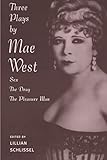 Mae West. Sex (1926), The Drag (1927), Babe Gordon (1930), Diamond Lil (1932), Pleasure Man (1975). I think some of these are novelizations of plays that she wrote. Mae West sounds like kind of a badass.
Mae West. Sex (1926), The Drag (1927), Babe Gordon (1930), Diamond Lil (1932), Pleasure Man (1975). I think some of these are novelizations of plays that she wrote. Mae West sounds like kind of a badass.
Gene Wilder. What is This Thing Called Love? (2010), My French Whore (2008), The Woman Who Wouldn’t (2008). I find it bizarre and delightful that Gene Wilder writes short stories about love and historical romances featuring Chekhov.
So that’s what I’ve got. I welcome your additions, revisions, and quibbles.








